
Are you experiencing hearing difficulties and looking for a solution? Audiologists in Singapore can help you with that. These professionals are trained to diagnose, treat, and manage hearing-related problems.
With their expertise, they can help you find the right hearing aid, provide hearing rehabilitation services, and offer advice on how to protect your hearing.
There are several audiologists in Singapore you can choose from, each with their own unique specialties and expertise. Some of the top-rated audiologists in Singapore include The Hearing Solution Group, D&S Audiology, and Hearing Partners Singapore.
These clinics offer comprehensive hearing assessments using state-of-the-art equipment and technology. They also have experienced and highly skilled audiologists who can provide personalized care and treatment plans to address your hearing needs.
If you’re looking for the best audiologists in Singapore to help you improve your hearing, this article will provide you with a list of the top-rated clinics and professionals in the city. With their help, you can regain your hearing and improve your quality of life.
Understanding Audiologist Profession in Singapore
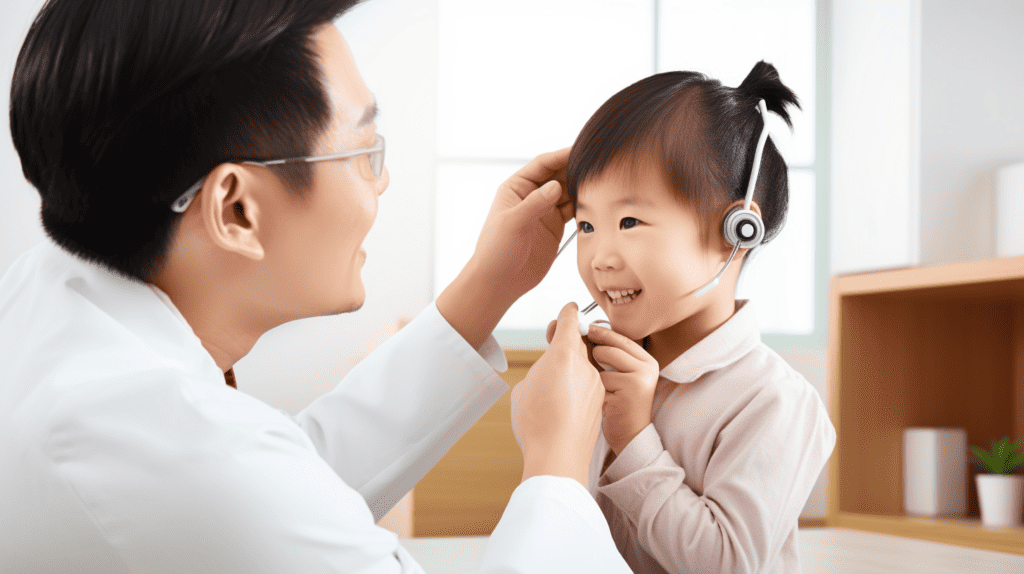
Are you interested in becoming an audiologist in Singapore? The audiology profession in Singapore is an exciting and expanding field that involves the study of hearing, balance, and associated disorders. As an allied healthcare professional, an audiologist is dedicated to helping individuals and their families alleviate, if not overcome, the impact of hearing or balance problems.
To become an audiologist in Singapore, you need to have the appropriate qualifications and certifications. Currently, the minimum qualifications recognized in Singapore are a Bachelor’s degree in audiology from overseas universities or a Master’s degree in audiology (entry-level) from either the National University of Singapore (NUS) or overseas universities.
The NUS Audiology program offers a Master’s degree in audiology that provides students with the necessary skills and knowledge to become a competent audiologist. The program is designed to prepare students for a career in audiology by providing them with a strong foundation in the scientific and clinical aspects of audiology.
As an audiologist in Singapore, you can work in both the public and private sectors. In the public sector, you can work in hospitals, primary healthcare settings, and educational institutions. In the private sector, you can work for private hospitals, hearing device manufacturers, and private clinics.
The Society for Audiology Professionals Singapore (SAPS) is a professional body founded in 2000 with the aim of promoting the development of the audiology profession in Singapore. SAPS is committed to improving the standards of hearing healthcare in Singapore and the region.
In conclusion, becoming an audiologist in Singapore requires a strong educational foundation and a commitment to helping individuals with hearing and balance problems. With the right qualifications and certifications, you can pursue a rewarding career as an audiologist in Singapore and make a positive impact on people’s lives.
Role of Audiologists in Hearing Health

If you are experiencing hearing problems, an audiologist is the healthcare professional you need to see. Audiologists are specialists who are trained to evaluate, diagnose, and treat hearing and balance disorders. They have the knowledge and experience to provide you with the best hearing healthcare possible.
Audiologists play a crucial role in promoting good hearing health. They provide hearing assessments to determine the severity of your hearing condition, as well as evaluate your overall hearing health.
Audiologists use various tests and assessments to diagnose hearing disorders, and they work closely with other healthcare professionals to develop a treatment plan that is tailored to your specific needs.
Audiologists are also experts in hearing aids and other hearing devices. They can help you choose the right hearing aid for your needs, and they can provide you with the necessary training and support to help you get the most out of your hearing device.
Audiologists can also provide aural rehabilitation and counselling to help you adjust to your hearing aids and improve your communication skills.
Communication is a critical aspect of the audiologist’s role. They work closely with their patients to ensure that they fully understand their hearing condition and the treatment options available to them. Audiologists provide consultation and education to their patients, as well as their families and caregivers, to help them manage their hearing problems effectively.
In summary, audiologists are highly skilled professionals who play a vital role in promoting good hearing health. They have the knowledge, experience, and expertise to diagnose and treat hearing disorders, as well as provide support and education to their patients.
If you are experiencing hearing problems, it is essential to consult with an experienced audiologist to receive the best possible care and treatment.
Patient Journey with Audiologists
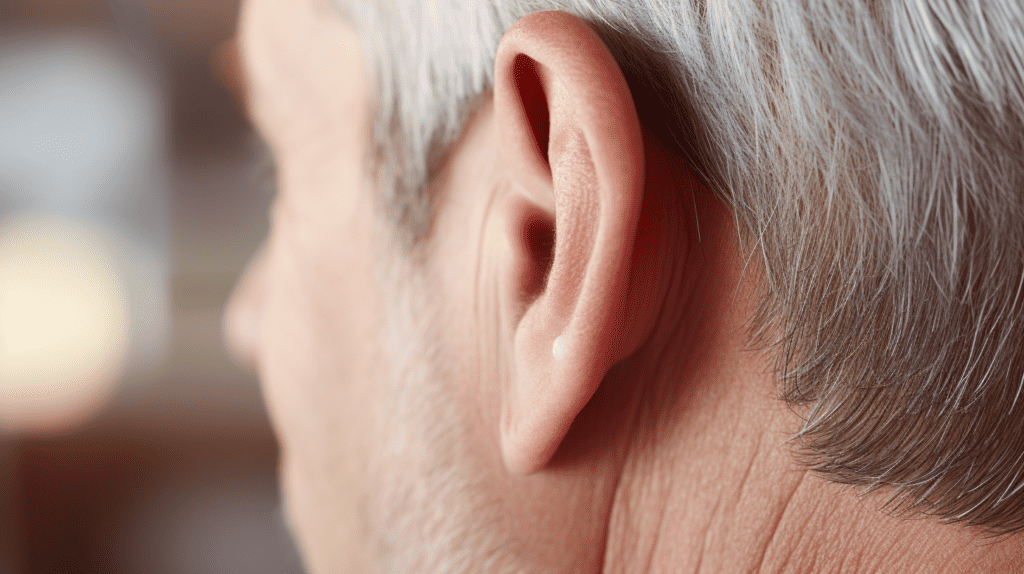
You’re not alone in your hearing journey. As a patient, you’re at the center of every decision made by your audiologist. From your initial appointment to your final treatment, your comfort and experience are top priorities.
When you first schedule an appointment with an audiologist, you’ll likely be asked about your medical history and any hearing concerns you may have. This information helps your audiologist understand your unique situation and create a personalized treatment plan.
During your appointment, your audiologist will perform a series of tests to evaluate your hearing abilities. These tests are non-invasive and painless, and they help your audiologist determine the type and severity of your hearing loss.
Once your audiologist has evaluated your hearing, they’ll discuss your treatment options with you. Depending on the severity of your hearing loss, your audiologist may recommend hearing aids, cochlear implants, or other assistive devices.
Throughout your treatment journey, your audiologist will be there to answer any questions you may have and provide ongoing support. They’ll work with you to ensure your hearing aids or other devices are comfortable and effective, and they’ll be available to make any necessary adjustments to your treatment plan.
In summary, the patient journey with audiologists is all about ensuring your comfort and providing personalized care. From your initial appointment to your final treatment, your audiologist will be there to support you every step of the way.
Audiologists’ Expertise in Balance Disorders

If you experience balance issues or dizziness, an audiologist can help you find relief. Audiologists are experts in the science of hearing and balance function. They specialize in diagnosing and managing various hearing and balance problems by performing a range of tests and assessments.
One of the most common balance disorders is vertigo, which is a feeling of spinning or dizziness. Audiologists can diagnose and treat vertigo by using a technique called videonystagmography (VNG).
This test measures the movement of your eyes while you watch a moving object. By analyzing the results, an audiologist can determine if your dizziness is caused by a problem with your inner ear or another underlying condition.
In addition to VNG, audiologists may also use other tests to diagnose balance disorders, such as the rotary chair test, the caloric test, and the posturography test. These tests evaluate different aspects of your balance system and help your audiologist determine the cause of your balance issues.
Once your audiologist has diagnosed your balance disorder, they can recommend a treatment plan that is tailored to your individual needs. This may include exercises to improve your balance, medication to reduce dizziness, or a referral to a specialist for further treatment.
In some cases, balance issues may be related to a brain injury or other neurological condition. Audiologists work closely with other healthcare professionals, such as neurologists and physical therapists, to provide comprehensive care for patients with balance disorders.
Overall, audiologists play a crucial role in diagnosing and managing balance disorders. If you are experiencing dizziness or balance issues, don’t hesitate to seek the expertise of an audiologist. They can help you find relief and improve your quality of life.
Prominent Audiologists and Hearing Care Centres in Singapore
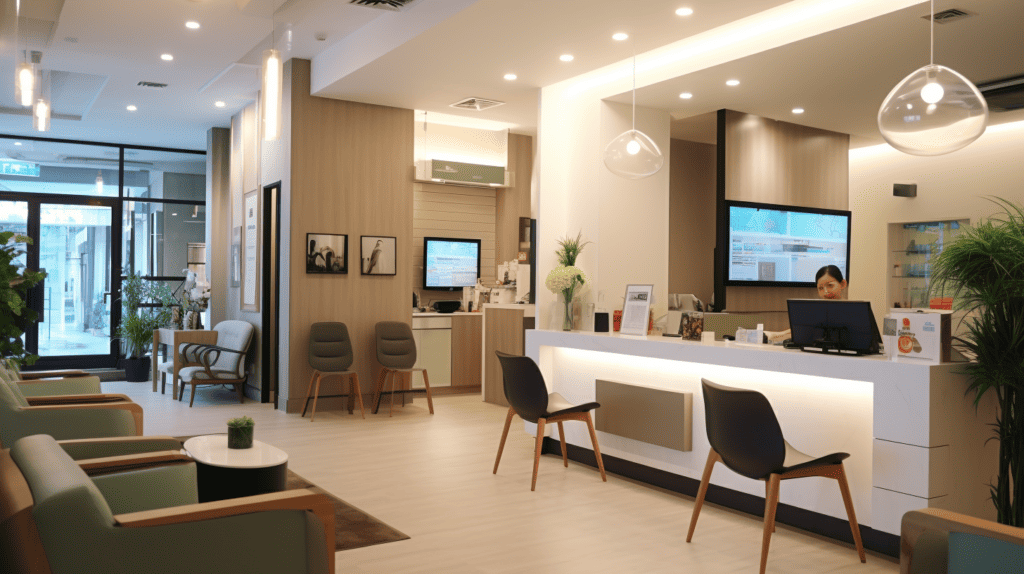
If you are looking for a reliable and experienced audiologist in Singapore, you have many options to choose from. From private clinics to large hearing care centres, there are many professionals and organizations that can help you with your hearing needs.
One of the most prominent hearing care centres in Singapore is the Hearing Solution Group. This organization has a team of experienced audiologists and hearing care consultants who are dedicated to providing their patients with the best long-term hearing and communication solutions. They offer a range of services, including hearing tests, hearing aid fittings, and ear wax removal.
Another well-known hearing care centre is Digisound Hearing. They have a team of experienced audiologists who specialize in the diagnosis and treatment of hearing loss. They offer a range of services, including hearing tests, hearing aid fittings, and tinnitus management.
If you are looking for an audiologist in Singapore who specializes in pediatric audiology, LynnElim Ear Nose Throat is a great option. They have a team of experienced audiologists who work with children of all ages to diagnose and treat hearing loss.
Faith Hearing Specialists is another reputable hearing care centre in Singapore. They offer a range of services, including hearing tests, hearing aid fittings, and tinnitus management. They also offer custom earplugs for musicians, swimmers, and other individuals who need to protect their hearing.
Dr. Charmaine Teo is a well-known audiologist in Singapore who specializes in the diagnosis and treatment of hearing loss. She works at Mount Elizabeth Hospital and has many years of experience helping patients with their hearing needs.
Overall, there are many effective hearing solutions available in Singapore, and you can find a reliable and experienced audiologist to help you with your hearing needs.
Understanding the Technology Behind Hearing Aids and Cochlear Implants
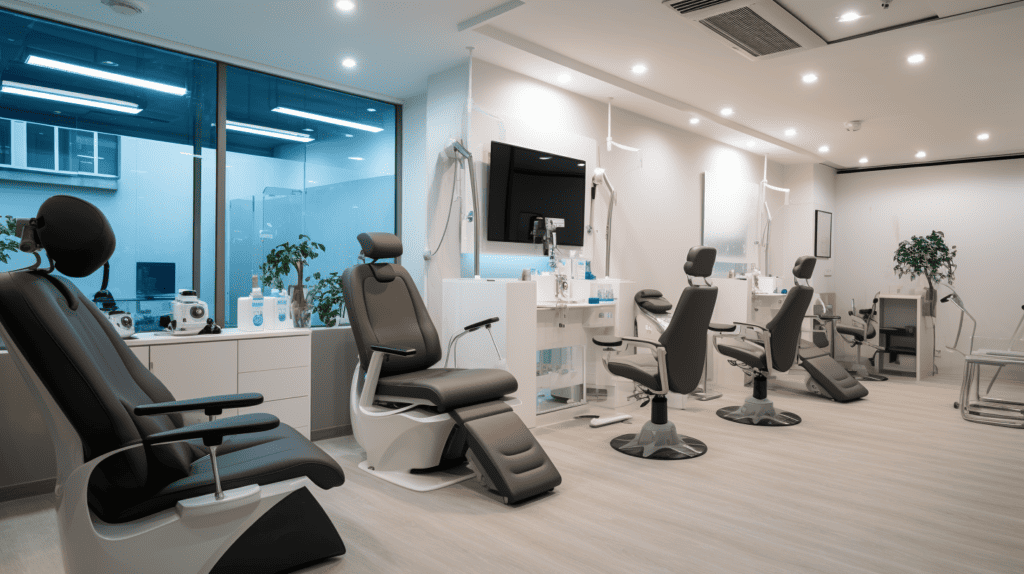
If you have hearing loss, you may be considering hearing aids or cochlear implants to improve your hearing. Both devices use advanced technology to help you hear better in different ways.
Hearing aids are small electronic devices that amplify sound and make it easier for you to hear. They consist of a microphone, an amplifier, and a speaker.
The microphone picks up sound, the amplifier increases the volume, and the speaker sends the amplified sound into your ear. Some hearing aids also have additional features such as noise reduction and directional microphones to help you hear better in noisy environments.
When it comes to hearing aids, there are many brands and models to choose from. Some of the most popular brands include Phonak, Oticon, and Widex. Your audiologist can help you choose the best hearing aid for your needs based on the severity of your hearing loss, your lifestyle, and your budget.
Cochlear implants are a bit different than hearing aids. They are surgically implanted devices that bypass damaged parts of the ear and stimulate the auditory nerve directly.
Cochlear implants consist of an external processor that sits behind the ear and an internal receiver that is implanted under the skin. The external processor picks up sound and sends it to the internal receiver, which stimulates the auditory nerve and sends the sound signals to the brain.
Cochlear implants are typically recommended for people with severe to profound hearing loss who do not benefit from hearing aids. Some of the most popular cochlear implant brands include Cochlear, Advanced Bionics, and MED-EL.
Both hearing aids and cochlear implants require fitting and adjustment to ensure they work properly for you. Your audiologist will work with you to determine the best settings and make any necessary adjustments to ensure you are hearing as well as possible.
In summary, hearing aids and cochlear implants use advanced technology to help you hear better. Hearing aids amplify sound while cochlear implants bypass damaged parts of the ear and stimulate the auditory nerve directly. There are many brands and models of hearing aids and cochlear implants to choose from, and your audiologist can help you find the best device for your needs.
Community Involvement and Research in Audiology
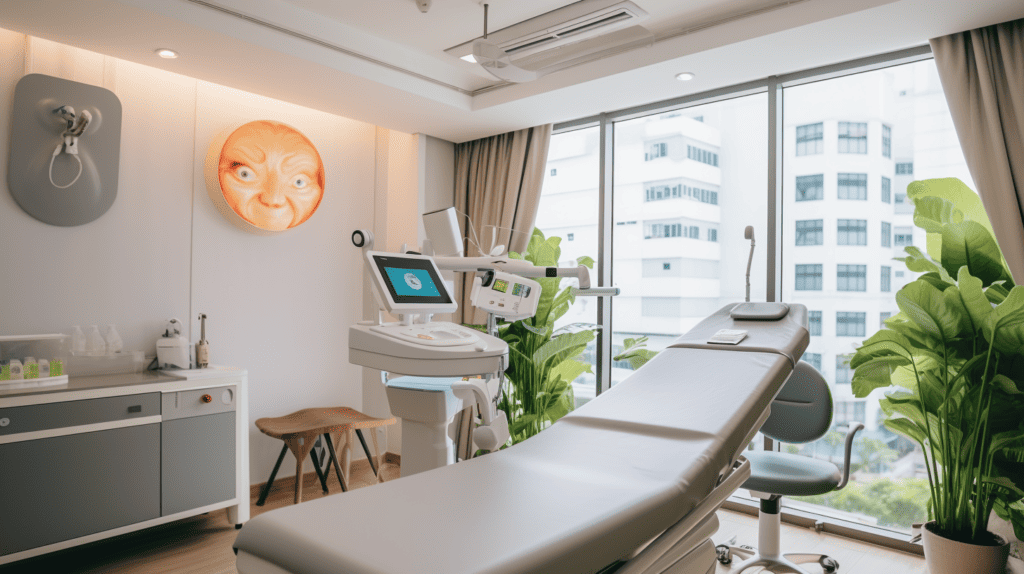
As a member of the audiology profession in Singapore, you have the opportunity to get involved in community outreach and research initiatives that aim to improve the standard of hearing healthcare in the country. By participating in these activities, you can make a positive impact on the lives of people with hearing impairments and contribute to the development of the field.
One way to get involved in the community is by volunteering at community-based hearing clinics. These clinics provide hearing assessments and hearing aid fittings to elderly Singaporeans who may not have access to such services.
The clinics leverage a new boothless method developed by the hearing research team at the National University of Singapore (NUS) Medicine, which allows for more efficient and cost-effective hearing assessments.
You can also participate in research studies that aim to improve our understanding of hearing impairments and their impact on individuals and society.
For example, a recent study conducted by the Society for Audiology Professionals Singapore (SAPS) investigated the factors that affect help-seeking behavior for hearing rehabilitation in Singapore. The study found that social stigma and lack of awareness were major barriers to seeking help for hearing impairments.
As a member of SAPS, you can also contribute to the development of the audiology profession in Singapore by attending professional development events and networking with other professionals in the field. SAPS offers a range of events and activities throughout the year, including workshops, seminars, and conferences, that provide opportunities for learning and growth.
By getting involved in community outreach and research initiatives, you can help to improve the standard of hearing healthcare in Singapore and contribute to the development of the audiology profession. So why not get involved today and make a difference in the lives of people with hearing impairments?
Understanding Tinnitus and Its Management
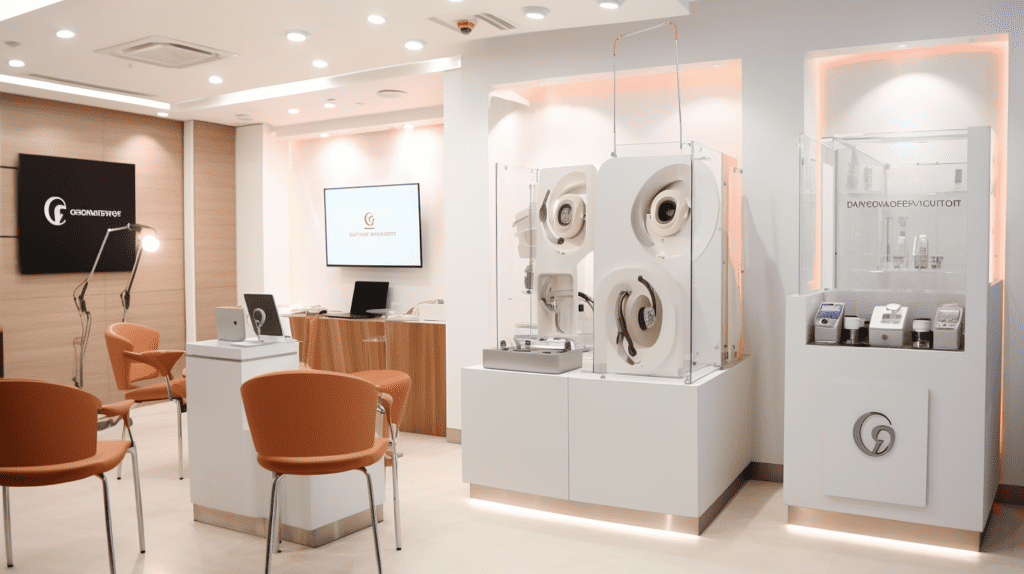
If you’re experiencing ringing, buzzing, hissing, chirping, whistling or other noises in one or both ears even when there is no external sound, you may be suffering from tinnitus. Tinnitus affects millions of people worldwide and can be a frustrating and debilitating condition.
The good news is that audiologists in Singapore can help you manage tinnitus. They can develop management programs that reduce the impact of the condition and restore your quality of life.
Tinnitus management programs are designed to help you cope with the condition and improve your overall well-being. These programs can include a variety of techniques, such as sound therapy, cognitive-behavioral therapy, and relaxation techniques.
Sound therapy involves using external noise to mask the internal noise of tinnitus. This can be accomplished through the use of hearing aids, white noise machines, or other sound-producing devices.
Cognitive-behavioral therapy can help you change the way you think about tinnitus and reduce the negative emotions associated with the condition. Relaxation techniques, such as deep breathing or meditation, can help reduce stress and improve your overall well-being.
It’s important to note that tinnitus management programs are not a cure for the condition. However, they can help you manage the symptoms and live a more fulfilling life.
If you’re experiencing tinnitus, it’s important to seek the help of an audiologist in Singapore who specializes in these conditions. They can provide you with the support and guidance you need to manage tinnitus and improve your overall well-being.
Cost and Reviews of Audiologist Services in Singapore
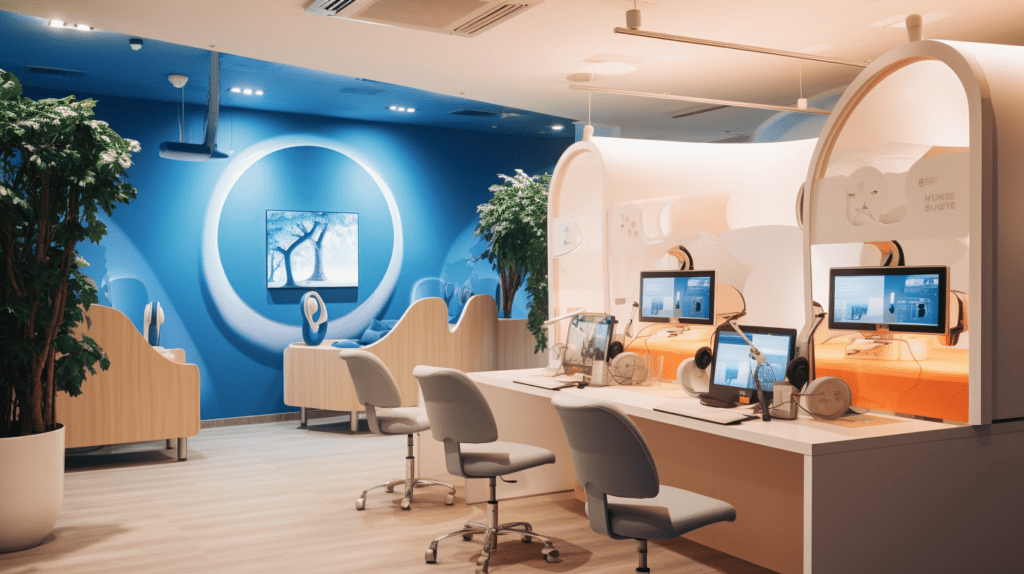
If you’re looking for an audiologist in Singapore, you may be wondering about the cost and quality of services available. Fortunately, there are many reputable audiologists in Singapore that offer affordable and effective solutions to hearing loss and other hearing disorders.
When it comes to cost, prices can vary depending on the services you need and the clinic you choose. Some clinics may offer packages that include hearing tests, hearing aid fittings, and follow-up appointments, while others may charge for each service separately.
On average, you can expect to pay anywhere from $80 to $200 for a hearing test, and $1,500 to $6,000 for a pair of hearing aids.
To get an idea of the quality of services provided by different audiologists, it’s a good idea to read reviews and testimonials from past clients.
Many audiologists have websites or social media pages where you can find reviews from satisfied customers. You can also check out online directories and review sites like SBO.sg and FunEmpire to see ratings and reviews for some of the best audiologists in Singapore.
One highly rated audiologist in Singapore is D&S Audiology. With a team of experienced and highly skilled audiologists, D&S Audiology offers comprehensive hearing assessments using state-of-the-art equipment and technology. They also offer a wide range of hearing aid brands and models to suit your individual needs and budget.
Another top-rated audiologist in Singapore is Faith Hearing Specialists. Headed by an experienced audiologist, Dr Charmaine Teo, Faith Hearing Specialists is committed to providing effective hearing solutions to individuals with hearing loss and tinnitus.
They offer a range of services including hearing tests, hearing aid fittings, and follow-up appointments, and have received many positive reviews from satisfied customers.
Overall, there are many great options for audiologist services in Singapore. By doing your research and reading reviews, you can find a reputable audiologist that offers high-quality services at an affordable price. If you’re experiencing hearing loss or other hearing disorders, don’t hesitate to contact an audiologist today to schedule a consultation.
Certifications and Regulations in Audiology Profession
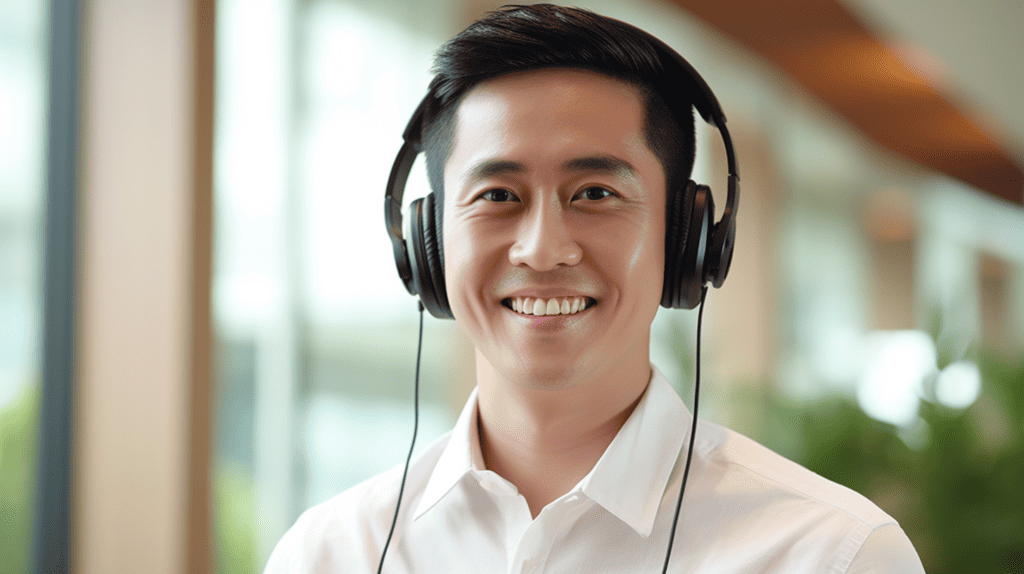
As an audiologist in Singapore, you need to meet certain certifications and regulations to practice in the field. The Ministry of Health (MOH) and the Allied Health Professions Council (AHPC) regulate the practice of audiology in the country.
To become an audiologist in Singapore, you need to hold a Bachelor’s degree in audiology from overseas universities or a Master’s degree in audiology (entry-level) from either the National University of Singapore (NUS) or overseas universities.
The Society for Audiology Professionals Singapore (SAPS) is a professional body that promotes the development of the audiology profession in Singapore. SAPS emphasizes the importance of continuing professional development for audiologists to maintain their credentials and stay up-to-date with the latest research and technology in the field.
The AHPC is responsible for registering and regulating the practice of allied health professionals in Singapore, including audiologists. The AHPC ensures that audiologists meet certain standards of practice and ethics, and that they maintain their credentials through continuing education and professional development.
The AHPC also investigates complaints against audiologists and takes disciplinary action against those who violate the standards of practice and ethics.
In addition to meeting the requirements set by the MOH and AHPC, audiologists in Singapore can pursue additional certifications and credentials to demonstrate their expertise in the field.
For example, the American Board of Audiology offers certification for audiologists who meet certain education and experience requirements and pass a rigorous exam. This certification is recognized internationally and can help audiologists stand out in a competitive job market.
Overall, the audiology profession in Singapore is highly regulated and requires audiologists to meet strict standards of practice and ethics. By staying up-to-date with the latest research and technology and pursuing additional certifications and credentials, audiologists can provide the best possible care for their patients and advance their careers in the field.
Prevention and Early Detection of Hearing Disorders
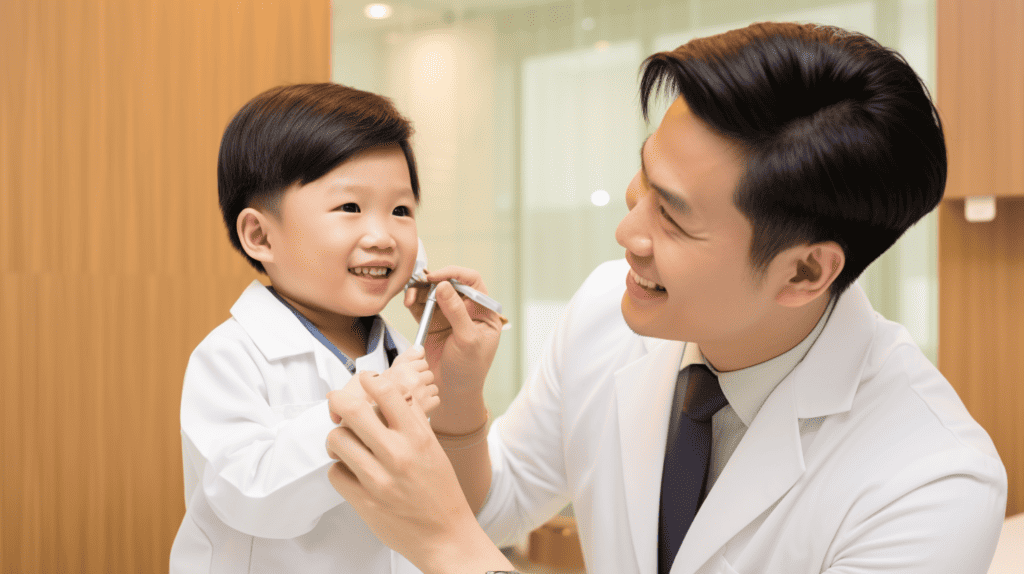
You may not realize it, but there are many things you can do to prevent hearing loss and other hearing disorders. Taking care of your ears and getting regular screenings are important steps you can take to protect your hearing.
Prevention is key when it comes to hearing disorders. Here are some things you can do to protect your hearing:
- Avoid loud noises: Exposure to loud noises can cause permanent hearing damage. If you work in a loud environment, make sure to wear ear protection. If you’re going to a concert or other loud event, consider wearing earplugs.
- Take breaks: If you’re exposed to loud noises for long periods of time, take breaks to give your ears a rest.
- Keep your ears clean: Make sure to clean your ears regularly to prevent infections and other issues.
- Be mindful of medications: Certain medications can cause hearing loss. Make sure to talk to your doctor about any potential side effects before taking a new medication.
In addition to prevention, early detection is also important. The earlier you catch a hearing disorder, the easier it is to treat. Here are some common symptoms of hearing disorders:
- Difficulty hearing in noisy environments
- Ringing in the ears
- Muffled or distorted speech
- Trouble understanding speech, especially on the phone
- Turning up the volume on the TV or radio
If you’re experiencing any of these symptoms, it’s important to get a hearing screening. Speech audiometry is a common screening test that measures your ability to hear and understand speech. Your audiologist can perform this test and recommend any necessary treatment.
Remember, prevention and early detection are key when it comes to hearing disorders. Take care of your ears and get regular screenings to protect your hearing.
Aftercare and Support for Patients
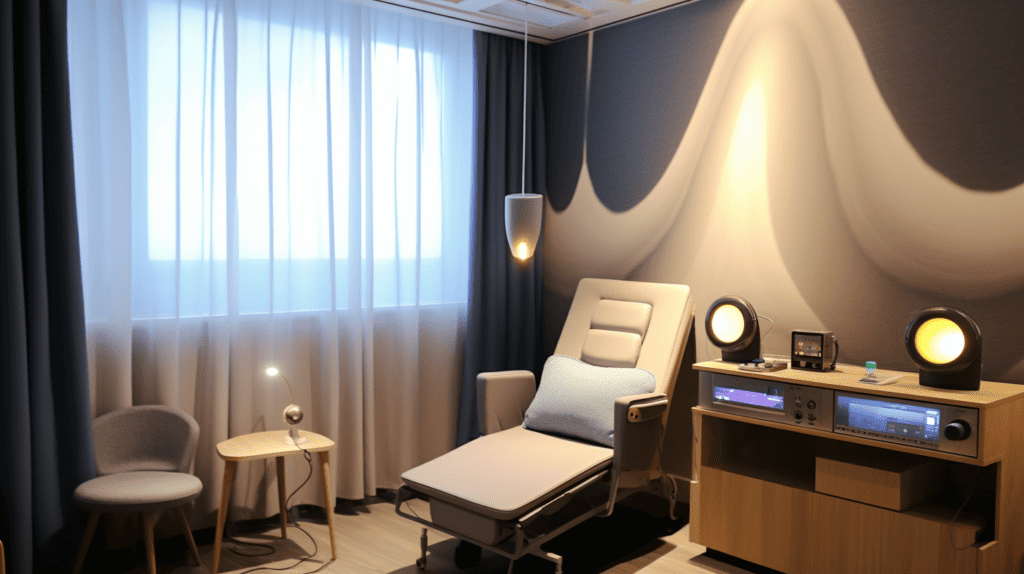
Congratulations on taking the first step towards better hearing! As a patient of an audiologist in Singapore, you can expect to receive top-notch care and support throughout your hearing health journey.
After your initial consultation and hearing test, your audiologist will work with you to develop a personalized treatment plan. This may include hearing aids, cochlear implants, or other assistive listening devices. Your audiologist will provide thorough instructions on how to use and care for your devices, as well as schedule follow-up appointments to ensure that they are working properly.
In addition to device maintenance, your audiologist will also provide ongoing support and aftercare. This may include:
- Counseling and education on hearing loss and communication strategies
- Regular hearing evaluations to monitor changes in your hearing
- Adjustments to your devices to ensure optimal performance
- Troubleshooting and repairs for any issues that arise with your devices
- Referrals to other healthcare professionals, such as ENTs or speech therapists, if necessary
Your audiologist is committed to helping you achieve the best possible hearing outcomes, and will work with you every step of the way. Don’t be afraid to ask questions or bring up any concerns you may have – your audiologist is there to support you.
References:
- D&S Audiology
- Hearing Partners Singapore
- Ng Teng Fong General Hospital
- The Hearing Centre
- Singapore General Hospital
Frequently Asked Questions
What qualifications do I need to become an audiologist in Singapore?
To become an audiologist in Singapore, you will need to have a Bachelor’s or Master’s degree in Audiology or a related field. You will also need to be registered with the Allied Health Professions Council (AHPC) in Singapore.
What is the average salary of an audiologist in Singapore?
The average salary of an audiologist in Singapore is around SGD 60,000 to SGD 90,000 per year, depending on your level of experience and qualifications.
How can I become an expert in audiology?
To become an expert in audiology, you will need to have a strong foundation in the basic sciences, as well as specialized training in audiology. You can gain this knowledge through a degree program in audiology, as well as through continuing education and professional development opportunities.
What are some of the best universities in Singapore for audiology?
Some of the best universities in Singapore for audiology include the National University of Singapore (NUS), Nanyang Technological University (NTU), and the Singapore Institute of Technology (SIT).
What is the difference between a hearing practitioner and an audiologist?
A hearing practitioner is a professional who specializes in hearing testing and fitting hearing aids, while an audiologist is a healthcare professional who specializes in the diagnosis and treatment of hearing and balance disorders.
Can an audiologist diagnose tinnitus?
Yes, an audiologist can diagnose tinnitus, which is a ringing or buzzing in the ears. They can perform a hearing test to determine the cause of tinnitus and develop a treatment plan to manage the symptoms.




